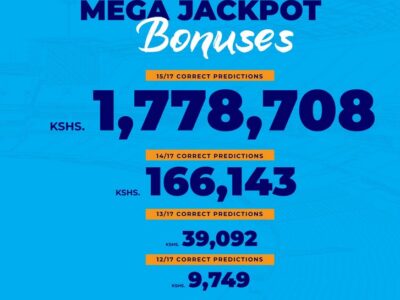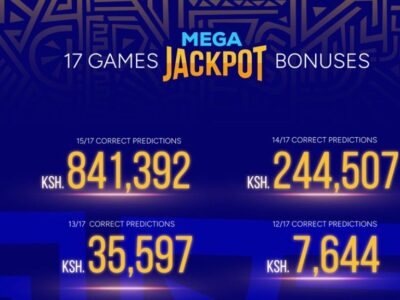The following are rates for VAT, Stamp Duty, and Customs Duty in Kenya
Value-added tax (VAT)
VAT is levied under the VAT Act, 2013. VAT is a tax on value addition and is accounted for using an input-output mechanism. There are four types of supplies that attract different VAT rates: 16% for taxable supplies, 0% for zero rated supplies, exempt supplies, and out of scope supplies.
VAT registration is required for persons making taxable supplies over KES 5 million in a 12-month period. In determining the threshold, it excludes the:
- sale of capital assets
- sale of a person’s enterprise, or
- cessation of business permanently.
A person making taxable supplies below the registration threshold may voluntarily apply to the Commissioner and register for VAT.
Input tax on a taxable supply or import may be deducted from the tax payable by a registered person on supplies made by one in a tax period to the extent that the supply or importation was acquired to make taxable supplies. Input tax is allowable for deduction within six months after the end of the tax period in which the supply or importation occurred.
Changes introduced by the Finance Bill, 2017
Finance Bill, 2017 (the Bill) has effected numerous changes, focusing primarily on zero rating as the core VAT incentive and targeted at economically significant sectors of the economy, to assist with their development. The prominent VAT changes are outlined below:
- There is a shift from zero rating to exemption for the downstream oil and gas industry. The supply of liquefied petroleum gas (LPG) is now exempt from VAT (previously, LPG was subject to VAT at zero rate). It is likely that the hidden costs associated with exemptions will be pushed to the consumer, making the product much more costly.
- In a bid to stimulate local manufacturers and the agricultural sector, the Bill has exempted inputs for the manufacture of pesticides. This exemption will allow local manufacturers to be more competitive and also promote the agricultural sector by reducing the cost of production.
- The Bill has exempted from VAT the supply of locally assembled tourist vehicles. This is a positive move towards promoting local assemblers as well as the tourism sector.
- The Bill has exempted from VAT asset transfers and other transactions related to the transfer of assets into Real Estates Investment Trusts (REITs) and Asset Backed Securities (ABSs). This exemption will reduce the overall cost of setting up REITs and ABSs.
- VAT exemption for Sharia compliant finance products. The Bill seeks to harmonise the VAT incentives offered across the financial services industry by providing for similar VAT treatment of Islamic finance products as with conventional finance products.
- The Bill has zero rated taxable goods supplied to marine fisheries and fish processors. This is aimed at reviving the fisheries sector and ensuring increased utilisation of marine resources as part of the economic growth agenda.
Value Added Tax Regulations, 2017
The Value Added Tax Regulations, 2017 (the Regulations) have been published by the Cabinet Secretary for the National Treasury more than three years since the enactment of the Value Added Tax Act, 2013 (VAT Act) in September 2013. Taxpayers have been relying on outdated Value Added Tax Regulations, 1994. The Regulations, which took effect from 4 April 2017, are subsidiary legislation meant to facilitate the efficient implementation of the principal legislation, the VAT Act.
The most notable amendment in the Regulations are procedures relating to the exportation of goods and services. Regulation 13 stipulates that:
- Goods are exported from Kenya when they are entered for export under the EAC Customs Management Act and delivered to a recipient outside Kenya.
- Services are exported from Kenya if they are provided to a recipient outside Kenya for use, consumption, or enjoyment outside Kenya; however, export of services does not include the following:
- Taxable services consumed on exportation of goods unless the services are in relation to transportation of goods that terminates outside Kenya.
- Taxable services provided in Kenya but paid for by a person who is not a resident in Kenya.
The documentation required as a proof of exportation of goods and services include:
- A copy of the invoice to the recipient.
- Proof of payment.
- For goods, a bill of lading, road manifest or airway bill, the export or transfer entry certified at the port of exit.
- For excisable goods, documents as per the Excise Duty Act, 2015.
- For services, other documents to prove that services were consumed outside Kenya.
Where the Commissioner has reasonable grounds to believe that the goods were not exported, the Commissioner may require evidence from a competent authority outside Kenya confirming that the goods were duly landed and entered for home consumption at a place outside Kenya.
The VAT Act defines services exported outside Kenya to be services provided for use or consumption outside Kenya.
While Regulation 13 requires an invoice showing the recipient of services to be a person outside Kenya as proof of exportation of services, the Regulation, on the other hand, excludes from the scope of exported services those services paid for by ‘a person who is not resident in Kenya’.
The Regulation has not addressed the issue of how to determine the place of use, consumption, or enjoyment; the Regulation has rather introduced location of recipient of the services and the location from where payment for services is made as additional tests for determination of export of service. This appears to be a shift from the ‘destination principle’ enshrined in the VAT Act.
Import (customs) duty
Import duty is levied under the East African Community (EAC) Customs Management Act. Imported goods are generally subject to import duty at varied rates, including 0% for raw materials and capital goods (also exempt from VAT), 10% for intermediate goods, and 25% for finished goods. However, a different rate of duty can be prescribed by the Council of Ministers of the EAC partner states. Enterprises established in an EPZ are exempt from customs duty on machinery and inputs for products manufactured for export while licensed oil and gas contractors with a Production Sharing Contract (PSC) with the government of Kenya are exempt from customs duty on importation of machinery, spares, and inputs used in exploration activities, excluding motor vehicles.
In addition, enterprises that are established under the SEZs enjoy import duty exemption. Where raw materials that are not subject to 0% import duty are used to manufacture goods for use locally within the EAC and for export outside the EAC, one may apply for remission under the EAC duty remission scheme. This is subject to a requirement for proof of export and one may be required to execute a bond/bank guarantee. Further, assemblers of motor vehicles and motor cycles, among others, enjoy import duty remission under the scheme.
Additionally, there is a list of other items and persons that are exempted from import duties under the Act.
Excise duty
Excise duty is imposed on the local manufacture or the importation of certain commodities and services. Excisable commodities include items such as bottled water, soft drinks, cigarettes, alcohol, fuels, and motor vehicles. Excisable services include mobile cellular phone services, fees charged for money transfer services, and other fees charged by financial institutions.
Below are the different categories of excisable products and their corresponding rates of excise duty. These include the changes introduced by the Finance Bill, 2017.
| Category | Goods description | Excise duty rates |
| Spirits | Spirits of undenatured ethyl alcohol; spirits liqueurs, and other spirituous beverages of alcoholic strength exceeding 10% | KES 200 per litre |
| Other alcoholic beverages | Wines | KES 150 per litre |
| Beer, cider, perry, mead, opaque beer, and mixtures of fermented beverages with non-alcoholic beverages and spirituous beverages of alcoholic strength not exceeding 10% | KES 100 per litre | |
| Powdered beer | KES 100 per kg | |
| Tobacco and tobacco products | Cigarettes with filters (hinge lid and soft cap) | KES 2,500 per mille |
| Cigarettes without filters (plain cigarettes) | KES 1,800 per mille | |
| Cigars, cheroots, cigarillos, containing tobacco or tobacco substitutes | KES 10,000 per kg | |
| Electronic cigarettes | KES 3,000 per unit | |
| Cartridge for use in electronic cigarettes | KES 2,000 per unit | |
| Other manufactured tobacco and manufactured tobacco substitutes; homogeneous and reconstituted tobacco; tobacco extracts and essences | KES 7,000 per kg | |
| Soft drinks | Fruit juices and vegetable juices | KES 10 per litre |
| Water and other non-alcoholic beverages, not including fruit or vegetable juices | KES 5 per litre | |
| Other excisable products | Plastic shopping bags | KES 120 per kg |
| Food supplements | 10% | |
| Motor vehicles of tariff heading 87.02, 87.03, and 87.04 | 20% | |
| Motor cycles of tariff heading 87.11 (excluding motor cycle ambulances and locally assembled motor cycles) | KES 10,000 per unit | |
| Excisable services | Mobile cellular phone services and other wireless telephone services | 10% |
| Money transfer services | 10% | |
| Financial services by financial institutions | 10% |
Stamp duty
Stamp duty is payable on transfer of properties, leases, and securities. For other properties, other rates of stamp duty apply as specified in the Schedule to the Stamp Duty Act. The rates of stamp duty are shown below:
| Activity | Stamp duty rate |
| Transfer of immovable property: | |
| Urban | 4% |
| Rural | 2% |
| Creation or increase of share capital | 1% |
| Registration of a company (nominal share capital) | 0% |
| Transfer of unquoted shares or marketable securities | 1% |
| Transfer of quoted shares of marketable securities | 0% * |
| Registration of a debenture or mortgage: | |
| Collateral security | 0.05% |
| Supplemental security | KES 20 per counter part |
| Lease: | |
| Period of three years and under | 1% of annual rent |
| Period over three years | 2% of annual rent |
* Transfer of quoted securities is exempt.
Tax on capital gains (CGT)
After being suspended for 30 years, the Finance Act, 2014 reintroduced CGT on transfer of property situated in Kenya. Therefore, gains derived on the sale or transfer of property by an individual or company carried out on or after 1 January 2015 are subject to a final tax at the rate of 5%. The definition of ‘property’ is widely drawn and includes securities in Kenyan resident private companies (though a specific exemption from CGT exists for securities listed in Kenya).
The High Court recently ruled that Paragraph 11A of the Eighth Schedule of the Income Tax Act cannot impose an obligation on a taxpayer to pay CGT on or before presenting a transfer instrument for registration as opposed to upon registration of the transfer instrument. The KRA has appealed the Court’s ruling, but no final decision is available at this date.
Compensating tax
Where a company pays dividends out of profits that have not been subject to CIT, the company will be liable to pay a compensating tax. The compensating tax rate is 42.8%. The aim of this tax is to ensure that all dividends are paid out of profits that have suffered CIT.
Turnover tax for small business taxpayers
A resident taxpayer whose annual gross turnover does not exceed KES 5 million will be taxed at the rate of 3% per quarter of one’s turnover. In such a case, the taxpayer will not be required to register for VAT. Turnover tax does not apply to rental income, management or professional fees, training fees, income subject to withholding tax (WHT) as a final tax, and income of incorporated companies. Loss making businesses are allowed to make an election to be exempted from turnover tax. A written application for exemption has to be made to the Commissioner, and there is a procedure to be followed.
Payroll taxes
Payroll taxes are administered through the pay-as-you-earn (PAYE) mechanism of deducting income tax from employment income (salaries, wages, bonuses, commissions, etc.). PAYE also applies to taxable non-cash benefits.
It is the employers’ obligation to deduct and account for payroll taxes on a monthly basis.
The tax tables applicable to individuals are provided in the Taxes on personal income section of Kenya’s Individual tax summary.
Employers’ National Social Security Fund (NSSF) contributions
Employers and employees are obligated to contribute monthly to the NSSF a standard contribution of KES 200 each. However, the new NSSF Act provides for a higher contribution rate of 6% of pensionable earnings with matching contribution from the employer. The implementation of the new Act awaits conclusion of a pending court case.
National Hospital Insurance Fund (NHIF) contributions
An employer has an obligation to deduct and remit NHIF contributions on a monthly basis.
NHIF is payable by the employee at graduated bands, up to a maximum of KES 1,700 per month. The maximum contribution is reached at a salary level of KES 100,000 per month.
Business permit
Every person who carries on a business in Kenya is required to apply for a business permit from the relevant local authority. The business permit is usually based on the size of one’s business and is renewable on an annual basis.
Tourism levy
The tourism levy is payable to the Tourism Fund by establishments dealing in tourism activities and services as listed in the Tourism Act at a rate of 2% of turnover.
National industrial training levy
All employers are required to pay to the Directorate of Industrial Training a monthly levy of KES 50 per employee. The only exemption is for employers remitting the tourism levy.
Railway development levy (RDL)
The RDL is payable on all imports into the country at 1.5% of the customs value of the goods. This was implemented to provide funds for the construction of a standard gauge railway track.
National construction levy
The National Construction Authority introduced a construction levy for all construction works that commenced after 6 June 2014. The levy is payable at the rate of up to 0.5% of the contract value of any construction project whose construction value exceeds KES 5 million. The levy is in relation to all construction projects relating to buildings, roads, water works, electrical works, and other works that require the service of a contractor.
Advance tax on motor vehicles
Advance tax is payable at varying annual rates depending on the motor vehicles and is creditable against any CIT payable for the year.
Fringe benefit tax (FBT)
The FBT is payable by an employer on interest-free or low-interest loans granted to employees, company directors, and their relatives. FBT is due, whether the employer is exempted from tax or not, at the resident CIT rate of 30%. The benefit is the difference between actual interest charged and the interest computed using the Commissioner’s prescribed rate published quarterly. The directors and employees are not personally taxed on the benefit.
Betting, lottery, and gaming taxes
The Finance Bill, 2017 has increased the amount of betting, lottery, and gaming taxes with effect from 1 January 2018 as follows:
| Tax type | Current rate/Tax base | New rate/Tax base |
| Betting tax | 7.5% of gaming revenue | 50% of gaming revenue |
| Lottery tax | 5% of lottery turn-over | 50% of lottery turn-over |
| Gaming tax | 12% of gaming revenue | 50% of gaming revenue |
| Prize competition tax | 15% of total gross turnover | 50% of total gross turn over |
Local government rent and rates
Rent and rates are levied annually on properties in Kenya, and the rateable value that is payable to the county government shall vary in each county based on various forms of ratings, such as area rate, agricultural rental value, or site value.












